
Arikok National Park: Aruba's Natural Gem
Arikok National Park is a magnificent natural reserve that covers nearly 20% of the island of Aruba. The park's diverse landscape includes dramatic limestone cliffs, picturesque sand dunes, rugged hills, and ancient caves adorned with indigenous Arawak Indian drawings. Visitors to Arikok can explore a variety of trails that lead to breathtaking viewpoints, secluded beaches, and unique geological formations. The park is home to a wide range of wildlife, including rare and endemic species such as the Aruban rattlesnake, the Aruban burrowing owl, and a variety of colorful birds and butterflies. In addition to its natural beauty, Arikok National Park offers a glimpse into Aruba's cultural history. The historic Cunucu Arikok, traditional Aruban farmhouses, and other remnants of the island's past can be found within the park. Whether you're an adventure seeker, a nature lover, or a history enthusiast, Arikok National Park promises an unforgettable experience.
Local tips in Arikok National Park
- Wear sturdy shoes for the rugged trails and uneven terrain.
- Bring plenty of water and sunscreen, as the park can get very hot.
- Visit early in the morning to avoid the midday heat and enjoy a quieter experience.
- Don't miss the Fontein Cave, known for its ancient Arawak Indian rock paintings.
- Check out the Visitor Center for maps, guides, and information on guided tours.
Arikok National Park: Aruba's Natural Gem
Arikok National Park is a magnificent natural reserve that covers nearly 20% of the island of Aruba. The park's diverse landscape includes dramatic limestone cliffs, picturesque sand dunes, rugged hills, and ancient caves adorned with indigenous Arawak Indian drawings. Visitors to Arikok can explore a variety of trails that lead to breathtaking viewpoints, secluded beaches, and unique geological formations. The park is home to a wide range of wildlife, including rare and endemic species such as the Aruban rattlesnake, the Aruban burrowing owl, and a variety of colorful birds and butterflies. In addition to its natural beauty, Arikok National Park offers a glimpse into Aruba's cultural history. The historic Cunucu Arikok, traditional Aruban farmhouses, and other remnants of the island's past can be found within the park. Whether you're an adventure seeker, a nature lover, or a history enthusiast, Arikok National Park promises an unforgettable experience.
When is the best time to go to Arikok National Park?
Iconic landmarks you can’t miss
Natural Bridge Aruba
Explore Aruba's Natural Bridge, a breathtaking geological marvel and historical landmark showcasing stunning coastal views and rich island heritage.
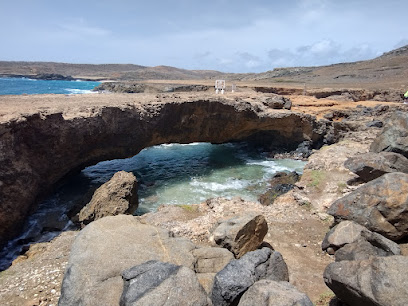
Casibari Rock Formations
Discover the breathtaking Casibari Rock Formations in Aruba, a natural wonder perfect for exploration, stunning views, and unforgettable memories.
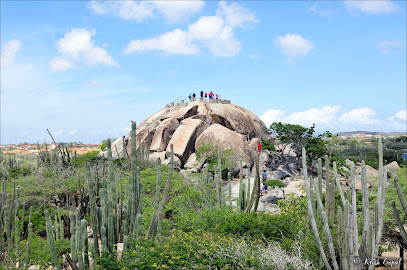
Bushiribana Ruins
Discover Aruba's gold mining history at the Bushiribana Ruins. Explore weathered stone structures, capture stunning ocean views, and imagine the island's gold rush era.
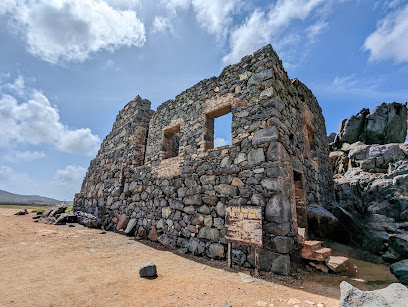
Donkey Sanctuary Aruba
Discover the heartwarming world of rescued donkeys at Donkey Sanctuary Aruba, a serene wildlife refuge dedicated to compassion and education.
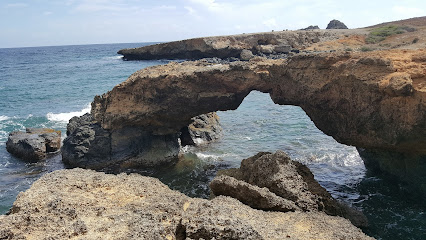
Fofoti Tree
Discover the enchanting Fofoti Tree, a natural landmark in Aruba that offers stunning views, perfect for relaxation and photography.
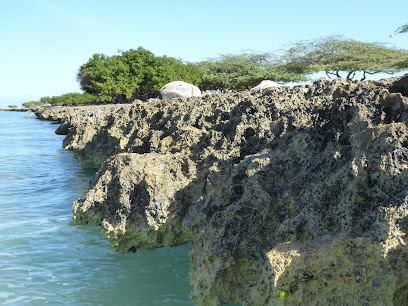
Fontein Cave
Explore Aruba's Fontein Cave, a mesmerizing natural cave filled with ancient petroglyphs and stunning geological formations in Arikok National Park.
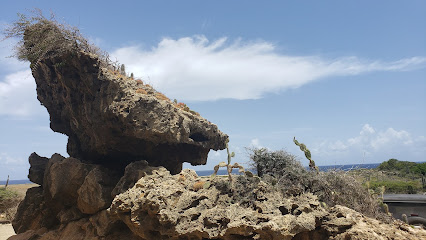
Quadirikiri Cave
Discover the mystical Quadirikiri Cave in Aruba's Arikok National Park, where nature's beauty meets rich history in an unforgettable adventure.
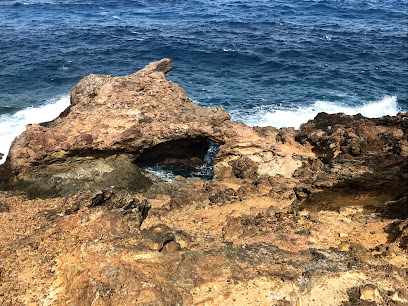
Aruba Ostrich Farm
Experience the captivating world of ostriches at Aruba Ostrich Farm, where adventure and education blend seamlessly in the heart of Aruba.
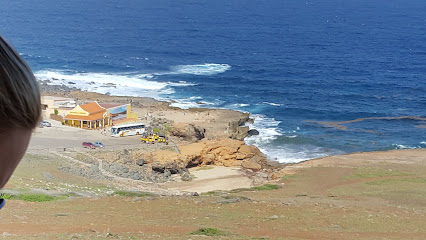
Hooiberg Hiking Trail
Discover the breathtaking views and natural beauty of Hooiberg Hiking Trail in Aruba, a perfect destination for adventure seekers and nature lovers alike.
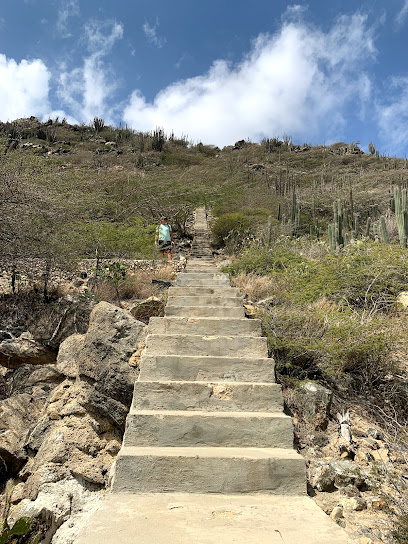
Blackstone beach
Experience the natural beauty and rich history of Blackstone Beach, a unique landmark in Aruba perfect for relaxation and adventure.
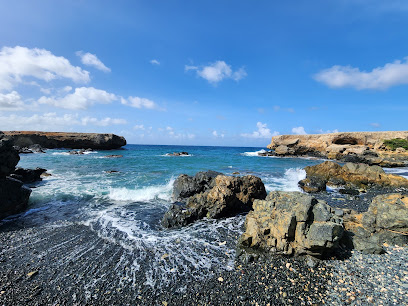
Balashi Gold Mills
Uncover Aruba's golden history at Balashi Gold Mills, a stunning historical landmark surrounded by breathtaking landscapes.
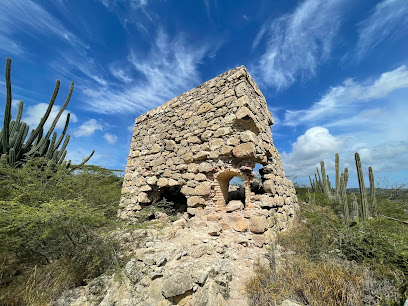
Hooiberg Lookout
Hike Aruba's iconic Hooiberg for breathtaking panoramic views of the island and the Caribbean Sea. A rewarding climb for all fitness levels!
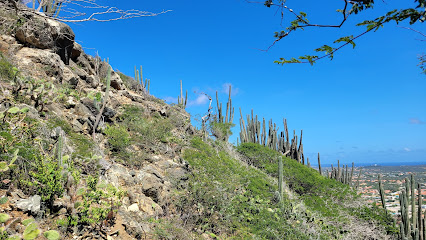
Boca Keto
Explore Boca Keto, a historical landmark in Santa Cruz, Aruba, where breathtaking views meet rich cultural heritage for an unforgettable experience.
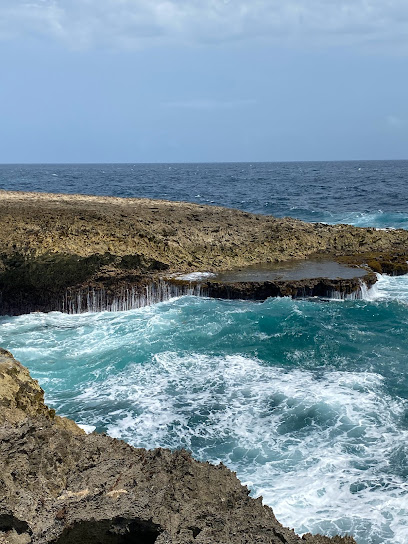
Vader Piet Entrance to Arikok National Park
Discover the breathtaking landscapes and rich heritage of Aruba at Arikok National Park, a paradise for nature lovers and adventure seekers alike.
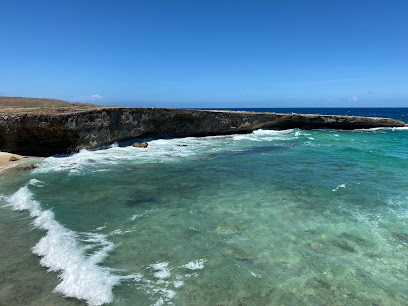
Colorado Point Scenic Lookout
Explore the stunning Colorado Point Scenic Lookout in Aruba, where breathtaking ocean views and unique geological formations await every traveler.
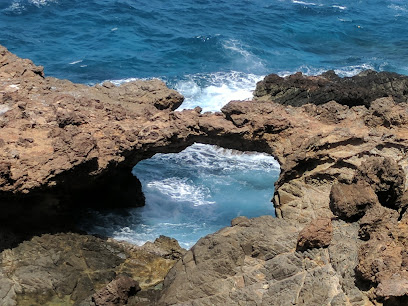
Unmissable attractions to see
Butterfly Farm
Experience the beauty of nature at the Butterfly Farm in Aruba, where colorful butterflies enchant every visitor in a serene tropical paradise.
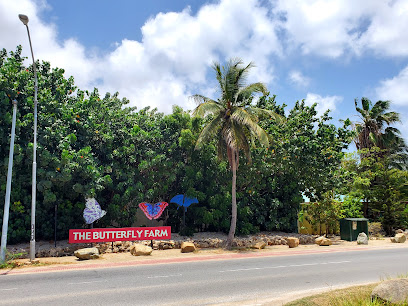
Philip's Animal Garden
Interact with exotic animals at this unique Aruba sanctuary, dedicated to rescue and rehabilitation. A memorable experience for all ages!
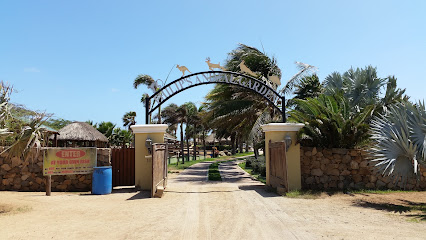
Fofoti Tree
Capture the iconic silhouette of Aruba's Fofoti Tree on Eagle Beach, a symbol of resilience and natural beauty shaped by the island's trade winds.
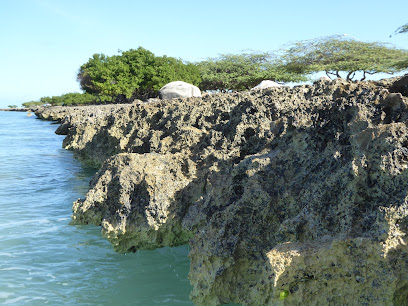
On The Rocks
Savor Aruban flavors with stunning views at On The Rocks, a premier dining destination in The Cove Mall, Noord, Aruba.

Alto Vista Winery & Distillery
Experience the unexpected: Aruba's first winery and distillery, crafting unique wines and spirits in a desert oasis.
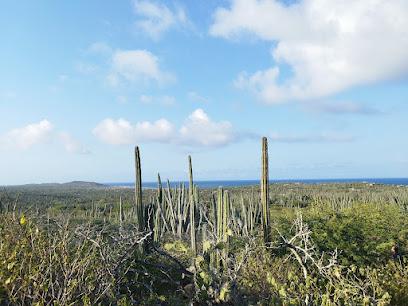
Clear Kayak Aruba
Explore Aruba's underwater world in a clear kayak: guided tours, vibrant marine life, and unforgettable eco-adventures in Savaneta.
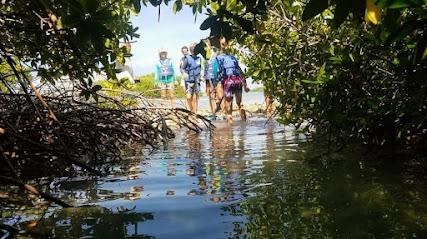
Bogart's chef's table Aruba
Experience bespoke fine dining in an intimate speakeasy setting at Bogart's Chef's Table, Aruba. A culinary journey crafted by Chef Ricardo Niels.

Peace Labyrinth
Find serenity and inner peace at Aruba's hidden gem, the Peace Labyrinth, a tranquil space for reflection and meditation near Alto Vista Chapel.
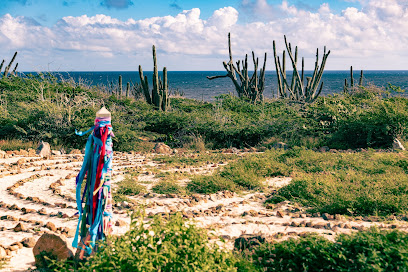
L'Avenue Aruba
Experience authentic Belgian-French cuisine in Aruba's Palm Beach. Enjoy classic dishes, curated beers, and live music in a cozy bistro setting.

Vader Piet Entrance to Arikok National Park
Discover Aruba's wild side at Arikok National Park. Explore rugged landscapes, unique wildlife, and ancient caves. A natural treasure awaits!
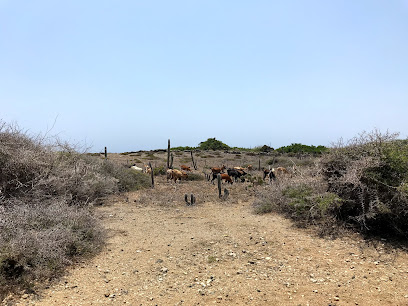
Drunken Burger
Experience gourmet burgers and a lively atmosphere at Drunken Burger, a must-try dining spot in Aruba's Cove Mall.

Boca Prins
Discover Aruba's wild side at Boca Prins: stunning dunes, rugged cliffs, and powerful waves in Arikok National Park. A photographer's paradise!
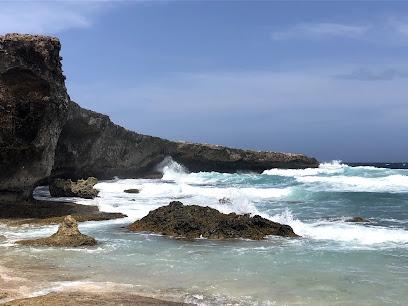
The Cove Mall
Discover Aruba's charm at The Cove Mall: a boutique shopping experience with diverse stores, dining, and entertainment in Palm Beach.
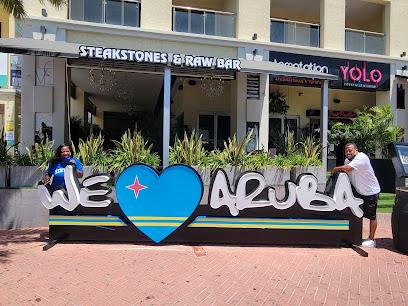
Ranchero Curason
Discover Aruba's wild side at Ranchero Curason: a secluded, rocky beach offering stunning views and a unique coastal experience.
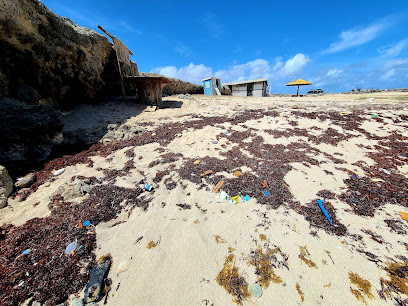
Aruba Horse Tour
Discover Aruba's hidden beauty on horseback. Guided tours for all skill levels. Experience the island's natural wonders in a unique way.
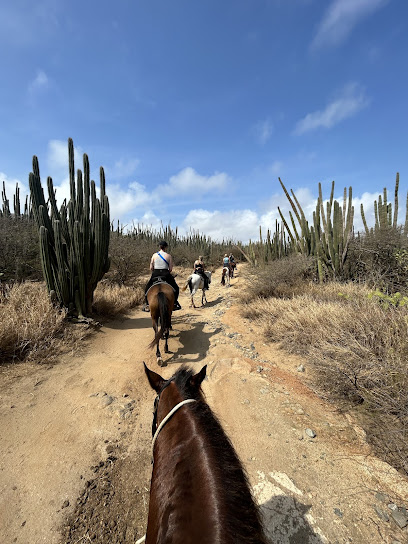
Essential places to dine
Flying Fishbone
Discover exquisite seafood and breathtaking sunset views at Flying Fishbone in Savaneta, Aruba - a culinary treasure by the sea.
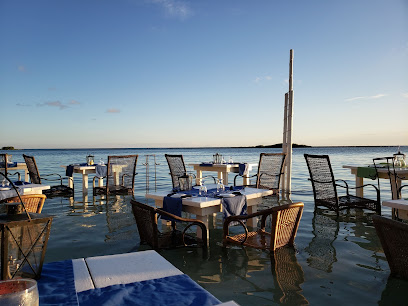
Passions On The Beach
Experience exquisite seafood dining at Passions On The Beach in Aruba - where culinary delight meets breathtaking ocean views.
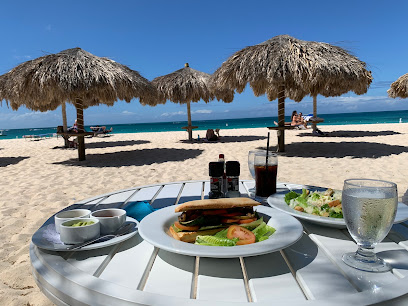
Faro Blanco Restaurant
Experience authentic Italian cuisine with stunning ocean views at Faro Blanco Restaurant in Noord, Aruba – where every meal is a celebration.
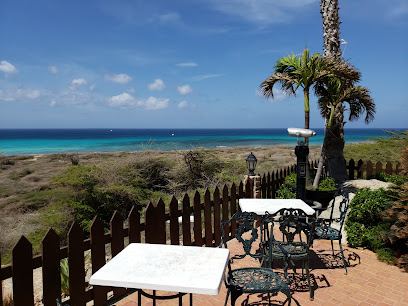
West Deck
Experience authentic Caribbean cuisine at West Deck in Oranjestad - where every meal is a taste of paradise by the sea.
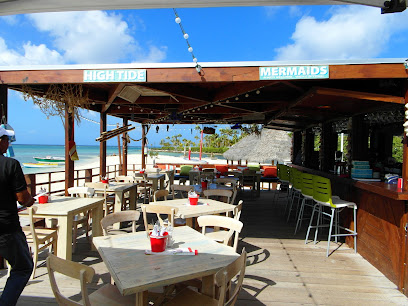
Barefoot Restaurant
Experience exquisite seafood dining right on the beach at Barefoot Restaurant in Aruba – where culinary delight meets stunning ocean views.
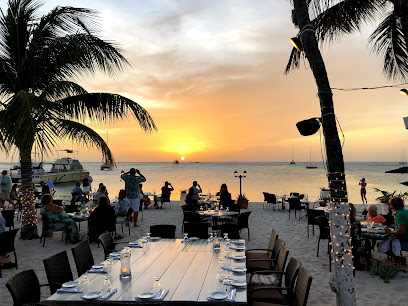
Yemanja Woodfired Grill
Discover authentic Caribbean flavors at Yemanja Woodfired Grill in Oranjestad - a culinary haven for seafood lovers and vegans alike.
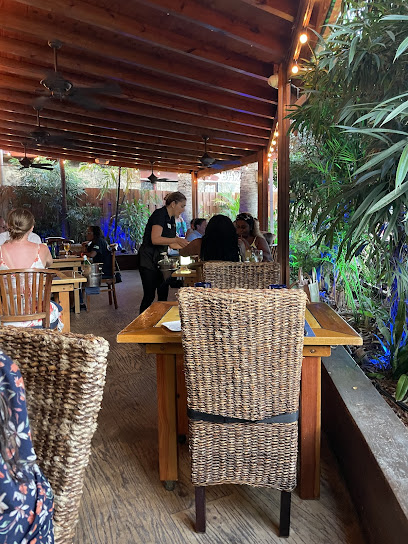
Kamini's Kitchen
Experience authentic Aruban cuisine at Kamini's Kitchen in San Nicolas – where every dish tells a story.
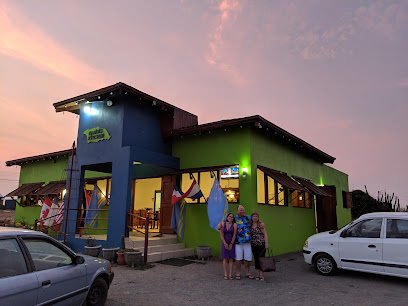
Pika's Corner Aruban Cuisine
Experience authentic Aruban flavors at Pika's Corner, where every dish tells a story of culture and tradition.
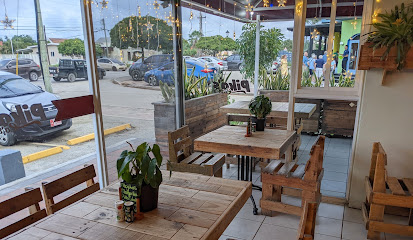
Driftwood Restaurant Aruba
Experience authentic Caribbean seafood at Driftwood Restaurant in Aruba – where fresh flavors meet vibrant island culture.
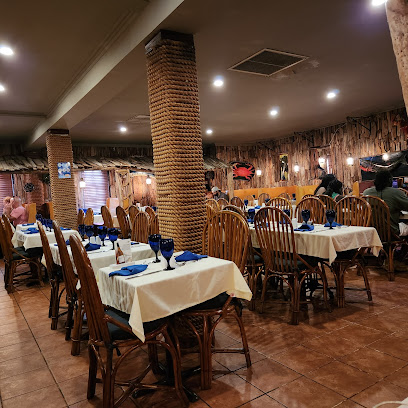
Quinta del Carmen
Experience exceptional dining at Quinta del Carmen in Oranjestad - where local flavors meet culinary artistry.
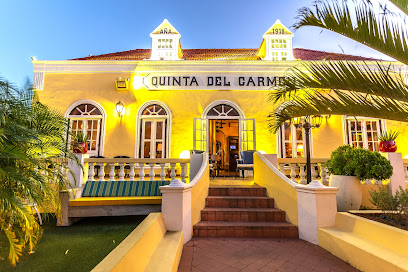
The Old Cunucu House Aruba
Savor the flavors of Aruba at The Old Cunucu House - where Caribbean cuisine meets tradition in an inviting setting.
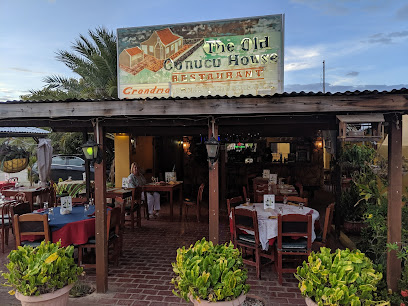
Así Es Mi Peru
Experience authentic Peruvian cuisine at Así Es Mi Peru in Aruba – where every dish tells a story and flavors come alive.
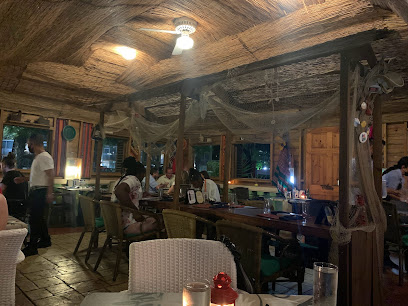
Papillon Restaurant
Experience exquisite French cuisine with a Caribbean twist at Papillon Restaurant in Noord, Aruba – perfect for fine dining lovers.
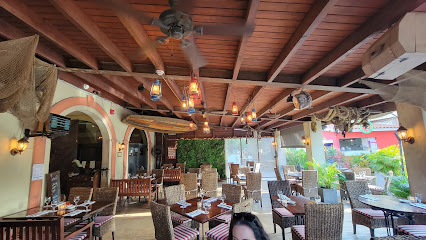
Aqua Grill Aruba | Fresh Seafood and More
Experience exquisite seafood and Caribbean cuisine at Aqua Grill Aruba - where every bite is a taste of paradise.
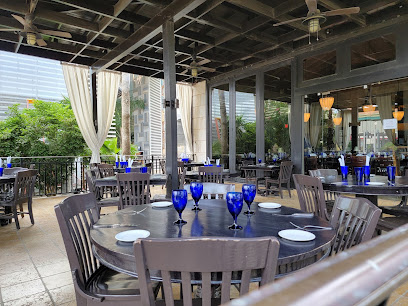
Lima Bistro
Experience the vibrant flavors of Peru at Lima Bistro in Aruba - a dining destination known for its exquisite cuisine and inviting atmosphere.
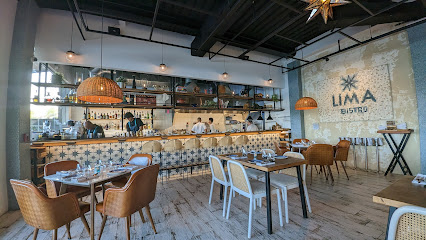
Markets, malls and hidden boutiques
Onehappycard
Explore Onehappycard in Aruba for unique gifts, local crafts, and convenient shipping services that capture the spirit of the island.
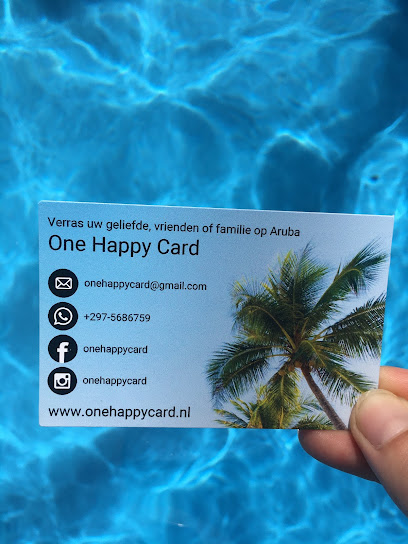
Style Aruba .com (Appt. Only! Book Online Or Call)
Explore Style Aruba: your go-to destination for unique gifts, beach fashion, and local treasures in the heart of Oranjestad.
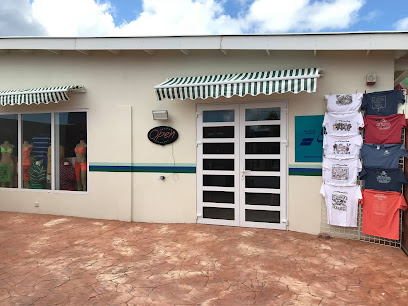
I Love Aruba Store I
Experience the vibrant spirit of Aruba at I Love Aruba Store I, your destination for unique souvenirs and exquisite local jewelry.
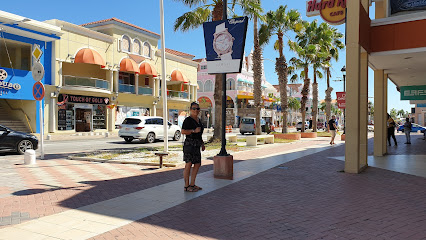
Shum's Store
Explore Shum's Store in Aruba - a whimsical toy store filled with joy, creativity, and unique gifts for all ages.

K&G Piedra Plat
Explore K&G Piedra Plat in Aruba for unique gifts, art supplies, and crafting essentials that embody the island's creative spirit.

Exclusive Vintage Boutique
Shop unique vintage clothing and accessories at the Exclusive Vintage Boutique in Oranjestad, Aruba, where timeless fashion meets island charm.

Curiosa By Caroll
Explore Curiosa By Caroll in Oranjestad for unique gifts and enriching aromatherapy classes that capture the essence of Aruba.

Thirst-Aid Station
Discover unique Aruban souvenirs and refreshing beverages at Thirst-Aid Station near Natural Bridge, Santa Cruz.
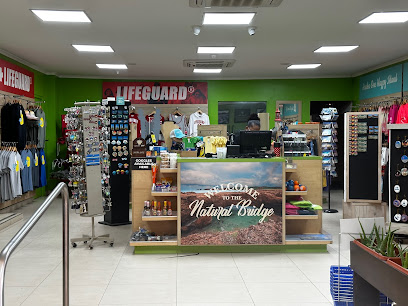
Mensonides Art Supply Aruba
Explore your artistic side at Mensonides Art Supply, Aruba's premier destination for quality art supplies and creative inspiration.

City Store
Explore the vibrant styles of Aruba at City Store, a unique clothing destination in Santa Cruz offering local designs and trendy fashion.

Noel Gifts & Home Utensils
Discover unique gifts and home essentials at Noel Gifts & Home Utensils in Oranjestad, Aruba – a shopper’s paradise for souvenirs and local crafts.
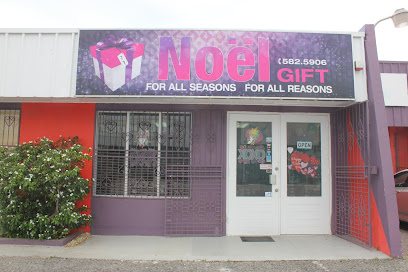
2 Palms Aruba
Explore the vibrant craftsmanship of Aruba at 2 Palms Aruba, your go-to destination for unique souvenirs and local art.
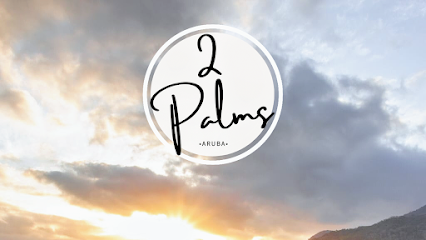
Coconuts De Palm Island
Explore Aruba's vibrant culture at Coconuts De Palm Island, your go-to gift shop for unique souvenirs and local treasures.
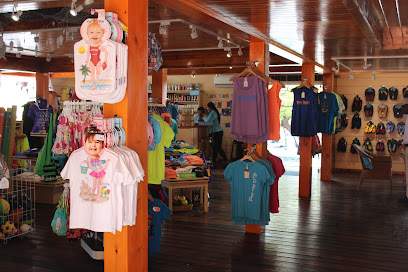
The Kododo Shop
Explore The Kododo Shop in Oranjestad for unique gifts and authentic Aruba souvenirs that capture the island's vibrant culture and artistry.
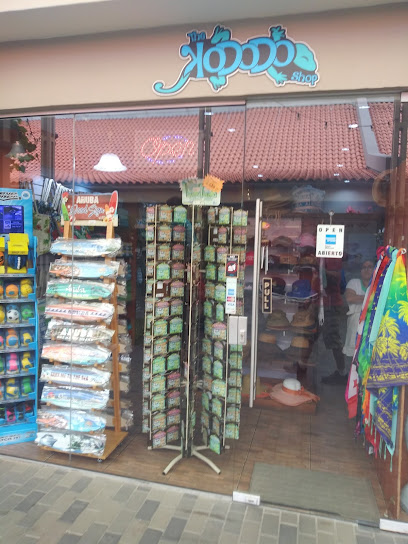
Artistic Boutique Aruba
Explore Artistic Boutique Aruba for unique, locally crafted gifts and souvenirs that embody the vibrant culture and creativity of the island.

Essential bars & hidden hideouts
Reflexions Beach Bar & Restaurant Aruba
Experience the vibrant atmosphere and delicious cuisine at Reflexions Beach Bar & Restaurant, a must-visit spot on Aruba's stunning coastline.
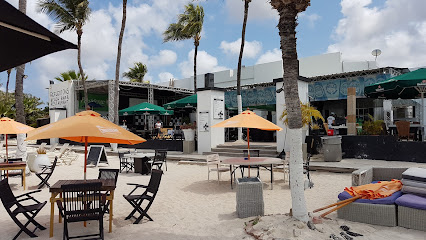
Sandra's Garden
Embrace the serene beauty of Sandra's Garden in Aruba, a perfect retreat for relaxation, refreshment, and picturesque views in a tropical paradise.
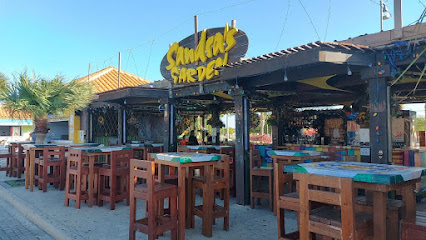
Café Chaos
Experience the vibrant nightlife of Aruba at Café Chaos, a popular bar in Oranjestad known for its lively atmosphere and creative cocktails.
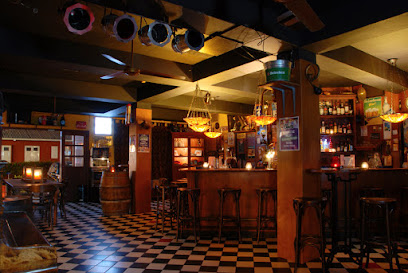
Mangel Halto Bar
Discover Mangel Halto Bar in Savaneta, Aruba - a charming bar with stunning views, refreshing drinks, and a vibrant atmosphere perfect for relaxation.
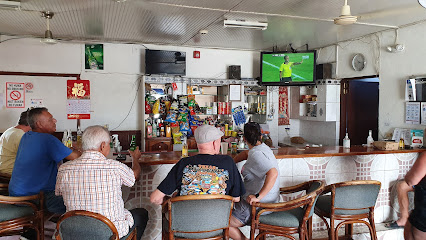
On The Rocks Cafe
Experience the vibrant flavors of the Caribbean at On The Rocks Cafe in Oranjestad, Aruba—your perfect culinary getaway.
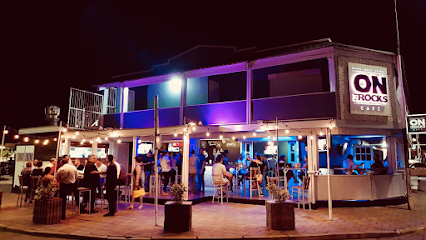
Apotek Speakeasy
Experience the best of Aruba's cocktail culture at Apotek Speakeasy, where unique flavors and a speakeasy vibe come together.
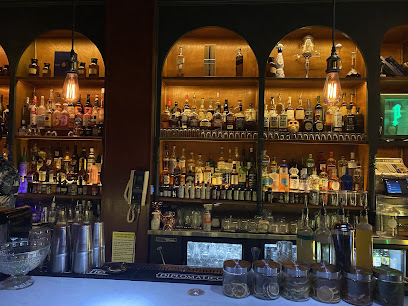
Cas Casuela Bar
Discover the vibrant nightlife at Cas Casuela Bar in Oranjestad, where refreshing cocktails and lively music create an unforgettable experience.

Rum Shop Pos Chiquito
Discover the heart of Caribbean culture at Rum Shop Pos Chiquito, a vibrant bar in Aruba known for its exceptional rum selection and lively atmosphere.
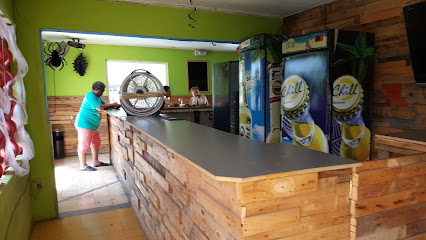
Young Fellow Bar and Restaurant
Experience the vibrant flavors of Aruba at Young Fellow Bar and Restaurant - a must-visit for tourists seeking local cuisine and a lively atmosphere.
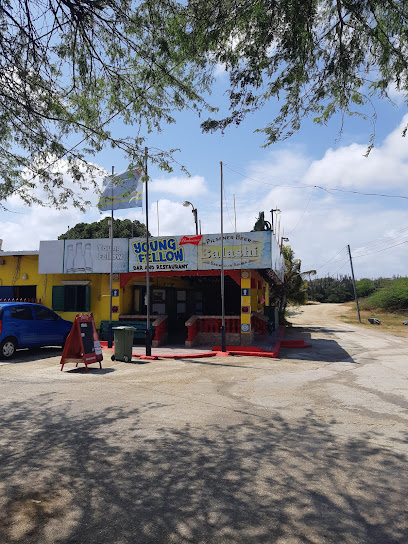
Irian Restaurant Bar
Explore the vibrant flavors of Aruba at Irian Restaurant Bar, where delicious food and refreshing drinks await in a lively atmosphere.
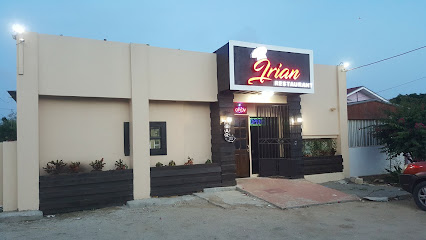
Los Recuerdos de Ella
Unwind at Los Recuerdos de Ella, a vibrant bar in Santa Cruz, Aruba, where delightful drinks meet local charm and lively atmosphere.
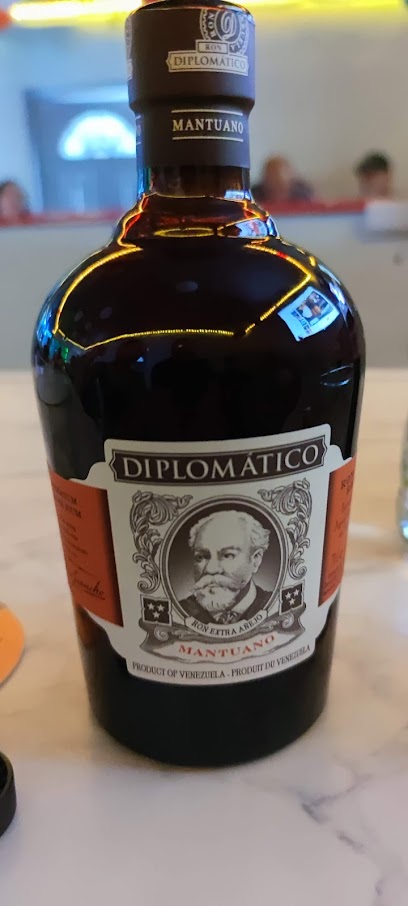
Terrace Bar & Cafe
Discover the charm of Terrace Bar & Cafe in Savaneta, Aruba - a perfect blend of local flavor, stunning views, and relaxing ambiance.
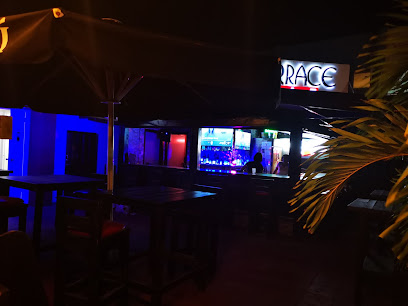
Unique Cocktail Lounge
Discover the vibrant nightlife of Aruba at the Unique Cocktail Lounge, where innovative cocktails and a lively atmosphere await.
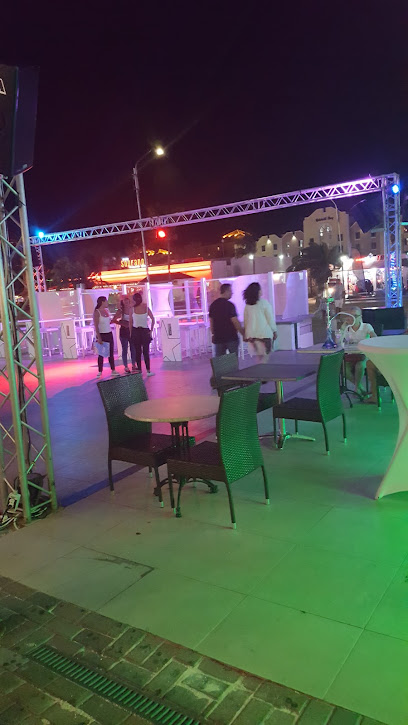
One Happy Bar
Experience the vibrant spirit of Aruba at One Happy Bar, where refreshing cocktails and a welcoming atmosphere await travelers in Oranjestad.

Local Phrases about Arikok National Park
-
- HelloBon bini
[bon bee-nee] - GoodbyeAyo
[ah-yo] - YesSi
[see] - NoNo
[no] - Please/You're welcomePor fabor
[por fah-bor] - Thank youDanki
[dan-kee] - Excuse me/SorryPardon
[par-don] - How are you?Con ta bai?
[kon ta bai] - Fine. And you?Bon. I bo?
[bon ee bo] - Do you speak English?Bo papia ingles?
[bo pa-pee-ah een-gles] - I don't understandMi no ta compronde
[mee no ta kom-prohn-deh]
- HelloBon bini
-
- I'd like to see the menu, pleaseMi ta desea pa wak e menu, por fabor
[mee ta deh-sah pa wak eh me-nu, por fah-bor] - I don't eat meatMi no ta come karni
[mee no ta ko-meh kar-nee] - Cheers!Salud!
[sa-loot] - I would like to pay, pleaseMi ta desea pa paga, por fabor
[mee ta deh-sah pa pa-gah, por fah-bor]
- I'd like to see the menu, pleaseMi ta desea pa wak e menu, por fabor
-
- Help!Yuda!
[yoo-dah] - Go away!Bai for di mi!
[bai for dee mee] - Call the Police!Yama polis!
[ya-ma pol-is] - Call a doctor!Yama un dokter!
[ya-ma oon dok-ter] - I'm lostMi a perde mi mes
[mee ah per-deh mee mes] - I'm illMi ta malu
[mee ta mah-loo]
- Help!Yuda!
-
- I'd like to buy...Mi ta desea pa cumpra...
[mee ta deh-sah pa koom-pra...] - I'm just lookingMi ta mire solamente
[mee ta mee-reh so-la-men-teh] - How much is it?Cuanto ta costa esaki?
[kwan-to ta kos-ta eh-sa-kee] - That's too expensiveEsaki ta muchu caro
[eh-sa-kee ta moo-choo ka-ro] - Can you lower the price?Por fabor, bo por baha e prijs?
[por fah-bor, bo por ba-ha eh prees]
- I'd like to buy...Mi ta desea pa cumpra...
-
- What time is it?Ki ora e ta?
[kee o-rah eh tah] - It's one o'clockTa un ora
[tah oon o-rah] - Half past (10)Diez y mei
[dee-ehs ee may] - MorningMadruga
[mad-roo-gah] - AfternoonTardi
[tar-dee] - EveningAnochi
[ah-no-chee] - YesterdayAnoche
[ah-no-cheh] - TodayAwe
[ah-weh] - TomorrowMañan
[man-yan] - 1Uno
[oo-no] - 2Dos
[dohs] - 3Tres
[tres] - 4Cuater
[kwa-ter] - 5Cinco
[seen-ko] - 6Seis
[says] - 7Siete
[see-eh-teh] - 8Ocho
[oh-cho] - 9Nuebe
[nweh-beh] - 10Diez
[dee-ehs]
- What time is it?Ki ora e ta?
-
- Where's a/the...?Unda ta e...?
[oon-dah tah eh] - What's the address?Kico ta e adres?
[kee-ko tah eh ah-dres] - Can you show me (on the map)?Bo por mustra mi (riba e mapa)?
[bo por moos-tra mee ree-bah eh mah-pah] - When's the next (bus)?Cua biaha e siguiente (bus)?
[kwa bee-ah-ha eh see-gwee-en-teh bus] - A ticket (to ....)Un ticket (pa ....)
[oon tee-ket (pah)]
- Where's a/the...?Unda ta e...?
History of Arikok National Park
-
Long before the arrival of European colonizers, Arikok National Park was inhabited by the Arawak people. These indigenous inhabitants left behind petroglyphs and pictographs within the park's caves, notably at Fontein Cave. These ancient artworks serve as a testament to the Arawak's deep connection with the land and their rich cultural heritage.
-
In the early 16th century, Spanish explorers arrived in Aruba, claiming it for the Spanish Crown. However, it was the Dutch who established a more lasting presence in the 17th century, after winning control from the Spanish. The Dutch influence is still evident in the island's culture and the park's historical landmarks, such as the ruins of gold mines and plantation houses.
-
In the 19th century, gold was discovered in Aruba, leading to a mining boom that significantly impacted the island, including the area now known as Arikok National Park. The remnants of historic gold mines, such as the Miralamar Mine, can still be found within the park, offering a glimpse into this lucrative yet challenging era.
-
During World War II, Aruba played a strategic role due to its oil refineries. The park's coastline was fortified to protect against potential German attacks. Evidence of these coastal defenses, including bunkers and observation posts, can still be seen along the rugged shoreline of Arikok National Park.
-
Recognizing the area's ecological and historical significance, Arikok National Park was officially established in 2000. Encompassing nearly 20% of Aruba's land area, the park was created to protect its diverse flora and fauna, as well as its rich historical and cultural sites.
-
Since its establishment, Arikok National Park has been at the forefront of conservation efforts in Aruba. The park's management focuses on preserving both its natural landscapes and cultural heritage. Initiatives include the restoration of historic sites, protection of endangered species, and educational programs aimed at promoting sustainable tourism.
Arikok National Park Essentials
-
Arikok National Park is located on the eastern side of Aruba. The nearest airport is Queen Beatrix International Airport in Oranjestad, which is approximately 20 kilometers away from the park. From the airport, you can rent a car, take a taxi, or join a guided tour to reach the park. The drive typically takes around 30 minutes.
-
While renting a car is the most convenient way to explore Arikok National Park, guided tours are also available and provide insightful information about the park's history and natural features. Taxis are available but can be expensive for longer trips. Biking is another popular option, especially for the more adventurous travelers. Public buses do not go directly to the park, so alternative transportation is necessary.
-
The official currency in Aruba is the Aruban Florin (AWG), but US dollars are widely accepted. Credit cards are accepted at the park's visitor center and in most establishments in the surrounding areas. However, it is advisable to carry some cash for entrance fees, guided tours, and small purchases, as some vendors may not accept cards.
-
Arikok National Park is generally safe for tourists. However, it is important to stay on marked trails to avoid getting lost or encountering dangerous wildlife. Always carry sufficient water, sunscreen, and wear appropriate hiking shoes. Although Aruba has a low crime rate, it is prudent to take standard precautions such as not leaving valuables in your car and being aware of your surroundings. Avoid isolated areas after dark.
-
In case of emergency, dial 911 for immediate assistance. The park rangers are trained to handle various emergency situations, and there is a small medical facility at the visitor center. It is recommended to have travel insurance that covers medical emergencies. For minor injuries, first aid kits are available at the visitor center.
-
Fashion: Do wear lightweight, breathable clothing and sturdy hiking shoes. Avoid wearing flip-flops or sandals on hiking trails. Religion: While Aruba is religiously diverse, there are no specific religious customs to follow in the park. Public Transport: Do use guided tours or rental cars; public buses do not go to the park. Greetings: Do greet people with a friendly 'Bon dia' (Good day). Eating & Drinking: Do bring your own water and snacks, as facilities inside the park are limited. Don’t litter; always use designated trash bins.
-
To experience Arikok National Park like a local, consider visiting early in the morning to avoid the midday heat and have the trails to yourself. Engage with park rangers, as they can provide valuable insights and tips. Don't miss the natural pools and caves, which are some of the park's hidden gems. For a unique experience, try a horseback riding tour through the park.
Trending Landmarks in Arikok National Park
-
Natural Bridge Aruba
-
Casibari Rock Formations
-
Bushiribana Ruins
-
Donkey Sanctuary Aruba
-
Fofoti Tree
-
Fontein Cave
-
Quadirikiri Cave
-
Aruba Ostrich Farm
-
Hooiberg Hiking Trail
-
Blackstone beach
-
Balashi Gold Mills
-
Hooiberg Lookout
-
Boca Keto
-
Vader Piet Entrance to Arikok National Park
-
Colorado Point Scenic Lookout
Nearby Cities to Arikok National Park
-
Things To Do in Savaneta
-
Things To Do in Pos Chiquito
-
Things To Do in Paradera
-
Things To Do in Sero Blanco
-
Things To Do in Tanki Leendert
-
Things To Do in Oranjestad
-
Things To Do in San Nicolas
-
Things To Do in Noord
-
Things To Do in Palm Beach
-
Things To Do in Sabana Westpunt
-
Things To Do in Westpunt
-
Things To Do in Soto
-
Things To Do in Barber
-
Things To Do in Sint Michiel
-
Things To Do in Julianadorp










